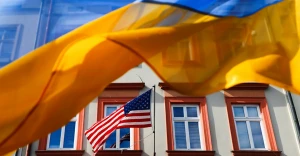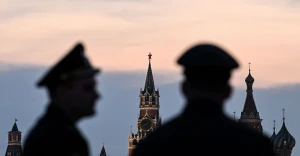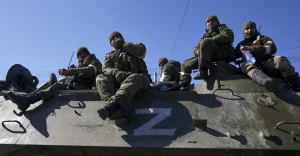
'Belarus, like Ukraine, must not be left to Putin': interview with Sviatlana Tsikhanouskaya
This week, Belarusians will, for the seventh time in their modern history, elect the president of the country through a nationwide vote. The ballot will feature the names of five candidates, but for the past 31 years, only one person has emerged victorious—Alexander Lukashenko
The previous election, not recognized by the democratic world due to massive falsifications, sparked a large wave of protests that lasted in the streets of cities and villages across Belarus in 2020. At the time, it seemed that Lukashenko’s regime would have to yield and that the “last dictator of Europe” would step down, but this did not happen.
In that election, the only officially registered opposition candidate was Sviatlana Tsikhanouskaya, the wife of a popular Belarusian video blogger, Siarhei Tsikhanouski, who was arrested before the voting began. As a result, Sviatlana Tsikhanouskaya became the figure around whom Belarusians’ hopes for change in the country were united. However, when Lukashenko, with the help of the Kremlin, regained full power in the country and dispersed the protests, Tsikhanouskaya was forced to leave her homeland and conduct her opposition activities from Lithuania, where the parliament recognized her as the legitimate president of Belarus.
Espreso spoke with the leader of the Belarusian opposition, Sviatlana Tsikhanouskaya, about her cooperation with Ukrainian authorities and what to expect next from Lukashenko’s regime.
“Lukashenko is trying to show Putin that the situation in Belarus is supposedly under control”
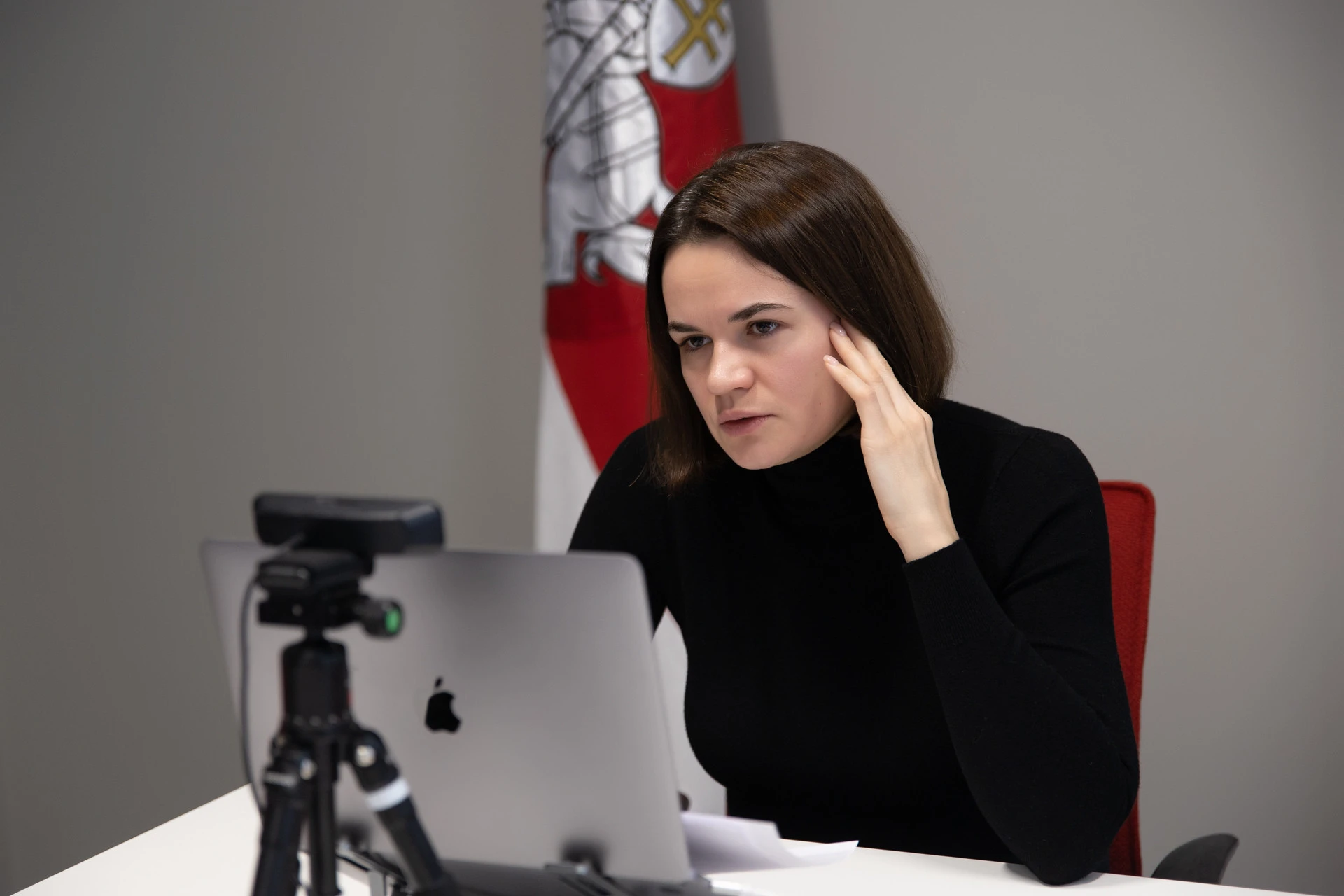
Photo: Sviatlana Tsikhanouskaya's Office
Several years have passed since the mass protests across Belarus. It seems that Lukashenko’s regime has tightened the screws in the system once again. So what is the Belarusian opposition abroad currently doing?
Lukashenko’s regime indeed continues to tighten the screws, but this is not a demonstration of strength—it is a demonstration of weakness. He literally clings to power through repression and Putin’s support. Lukashenko carries the trauma of 2020, when hundreds of thousands of Belarusians took to the streets. He lives with this fear and behaves as if thousands are still standing outside his palace.
At the same time, he tries to show Putin that the situation in Belarus is supposedly under control. This is important for Moscow because the Russians, through Lukashenko, are trying to control Belarus. But even within the system, dissatisfaction is brewing. We communicate with officials, and there is an understanding that Lukashenko is handing the country over to Putin, leading it into a dead end.
Despite all the propaganda, pro-democratic and anti-war sentiments persist in society. Putin and Lukashenko have not been able to draw Belarusians into the war. Belarusians have not given up; many continue to fight. However, the protest has gone underground. Street protests are now impossible—repression is at the level of Stalin’s times.
Our task, the task of democratic forces now, is to support the underground and the repressed, work in the informational space, increase international pressure on Lukashenko’s and Putin’s regimes, and close loopholes in sanctions. We are also gathering evidence of Lukashenko’s crimes and data on arms supplies to Russia. We are building alternative institutions of power—the United Transitional Cabinet, the Coordination Council—to be ready for the window of opportunity that will inevitably open. We are forming international coalitions and have launched strategic dialogues with the US, EU, Canada, and the UK. Of course, we advocate for Ukraine. Without a free Ukraine, there will be no free Belarus. The fate of Belarus, like the fate of Ukraine, now depends on the determination of the free world.
“The fact that the Belarusian army did not join the fighting is the achievement not of Lukashenko but of Belarusian society”
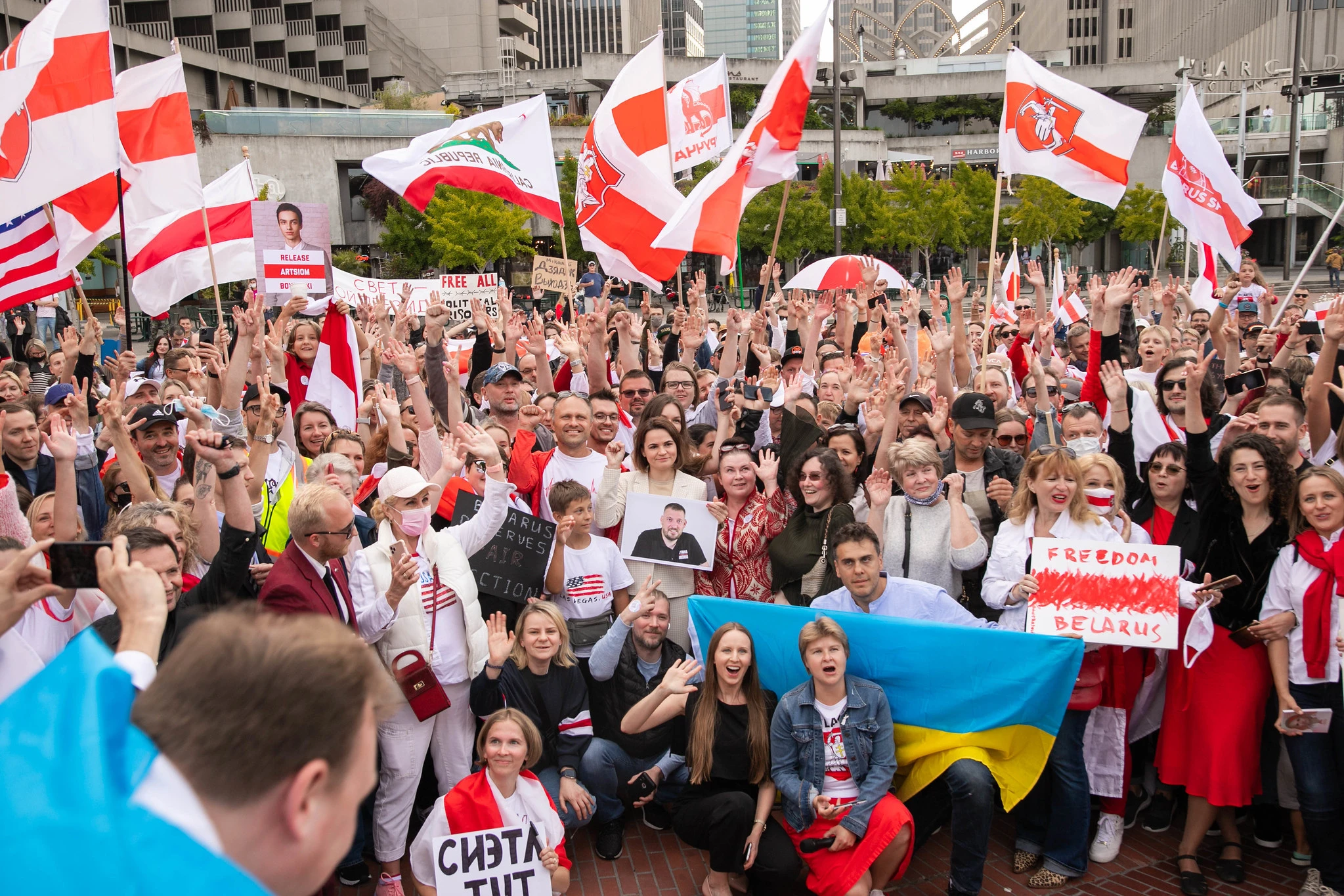
Photo: Sviatlana Tsikhanouskaya's Office
Does the Belarusian underground still exist? What are the sentiments within the Belarusian army, particularly regarding involvement with Russia in the war against Ukraine or, hypothetically, against NATO?
The underground exists, although currently not many are actively operating. Hundreds of people have been sentenced for acts of sabotage and anti-war actions since 2022; many have received 10-15-20 years in prison. Initiatives like “Belarusian Hajun” gather information about Russian military activity. Many activists have joined the Kalinouski Regiment and other units fighting for Ukraine. More than 80 volunteers have already died for Ukraine’s freedom.
There are no anti-Ukrainian sentiments in the Belarusian army. Most military personnel oppose participation in the war, and there is an absolute consensus among the population: the Belarusian army should not take part. The fact that the Belarusian army did not join the fighting is the achievement not of Lukashenko but of Belarusian society.
Of course, propaganda tries to convince people that Ukraine, Poland, and Lithuania are enemies, but few believe it. We urge the military, if they receive an order to join the war, to refuse to carry it out and to sabotage actions. I am confident many will do so. Belarus is not Russia. We do not have imperial complexes and ambitions. We are a European nation that aspires to peace, freedom, and independence.
“Without free Ukraine, there will be no free Belarus. And vice versa: without free Belarus, there will be no secure Ukraine”
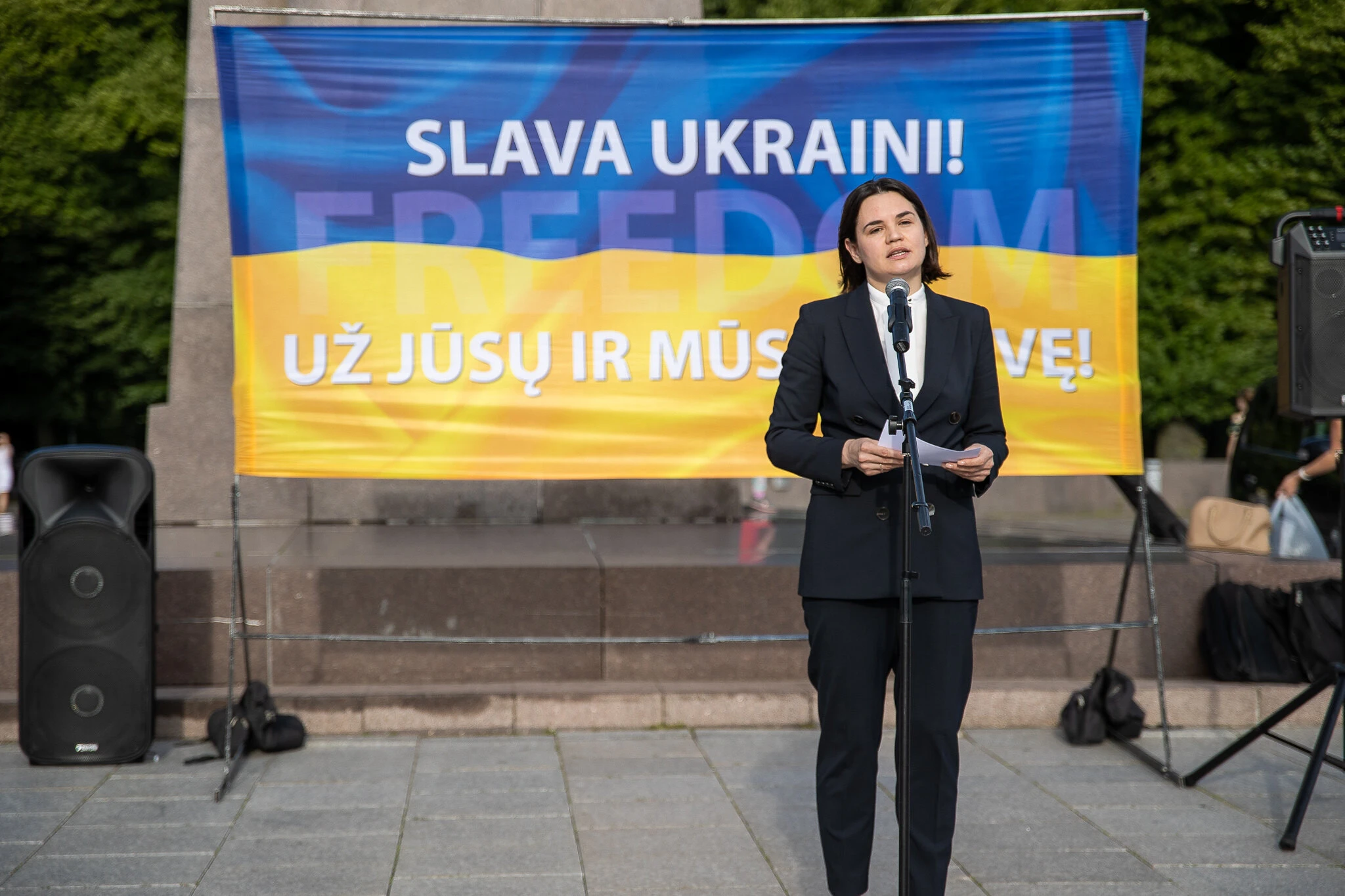
Photo: Sviatlana Tsikhanouskaya's Office
How does the Belarusian opposition cooperate with the Ukrainian authorities, and at what level? How do you advocate for Ukraine abroad, and can we expect to see you in Ukraine in the near future?
We are constantly in contact with representatives of Ukraine’s Ministry of Foreign Affairs, the President’s Office, and other key structures. There is a group of friends of democratic Belarus in the Verkhovna Rada. Ukraine has also appointed a special envoy, Ambassador Ihor Kyzym, who is our main contact person. We have met multiple times with Ukraine’s Minister of Foreign Affairs at international forums, and Ukraine actively participates in our initiatives within organizations like the OSCE.
We have already held the Belarusian-Ukrainian Ostroh Forum three times—in Lviv and Kyiv. This is the main regular platform where Belarusian democratic politicians work alongside Ukrainian diplomats, parliamentarians, experts, academics, and civil society.
The issue of Ukraine is present in every one of my speeches and meetings, regardless of whether I am talking to a president, prime minister, or other leaders of different countries. I always emphasize one thing: Ukraine must be given everything it needs to win. Let me repeat—without a free Ukraine, there will be no free Belarus. And vice versa: without a free Belarus, there will be no secure Ukraine.
Cooperation with Ukrainian society is extremely important to us. We understand that the Ukrainian government may be cautious about contacts with Belarusian structures due to the Lukashenko regime. But we will support Ukraine under any circumstances and remain open to such contacts if the Ukrainian government wishes to engage.
“We must demand the withdrawal of Russian troops and weapons not only from Ukraine but also from Belarus”
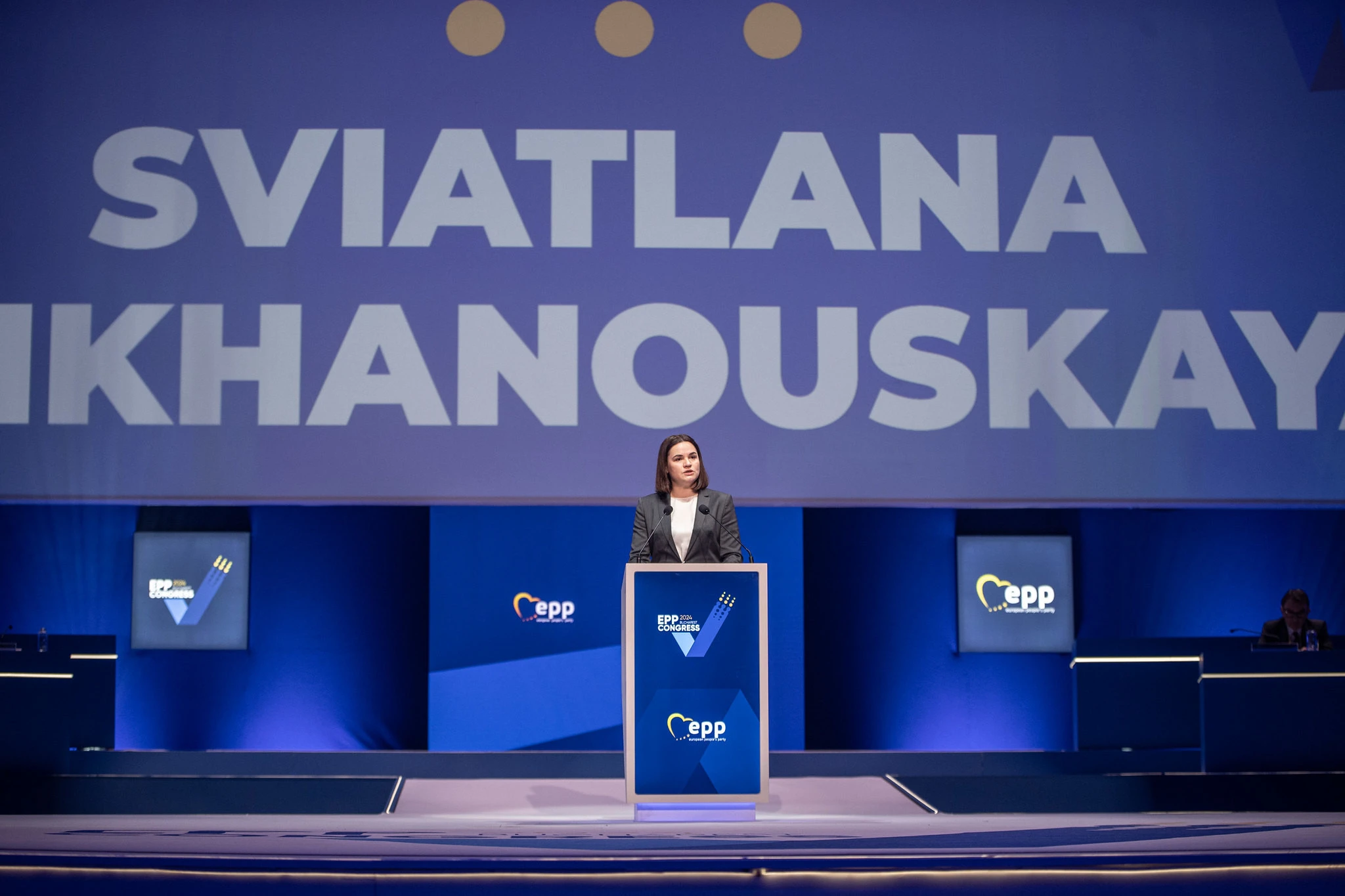
Photo: Sviatlana Tsikhanouskaya's Office
There has been information that Russia has deployed nuclear weapons in Belarus, and Lukashenko wants to acquire a new Oreshnik missile system. What do you think this means—intimidation of the West by moving Russian weapons closer?
There is no concrete confirmation yet that nuclear weapons are indeed in Belarus, but all the necessary infrastructure has been created. Both the Oreshnik system and nuclear weapons are tools of psychological and informational warfare. Their goal is to pressure Western countries, divert resources away from Ukraine, and force Poland and other allies to spend more on their own defense. For Putin, nuclear weapons and the Oreshnik system are also a way to exert greater control over Belarus, as it is clear that all such weapons in Belarus would be under Putin’s control.
The Russian presence in Belarus is a threat to Belarusians and the entire region. That is why we insist that any negotiations regarding Ukraine must also demand the withdrawal of Russian troops and weapons not only from Ukraine but from Belarus as well. Only in this way can sustainable peace be achieved.
“If Lukashenko is gone tomorrow, a power struggle will begin”

Photo: Sviatlana Tsikhanouskaya's Office
This Sunday, elections are being held in Belarus, and everyone understands that Lukashenko will once again declare himself president. However, he is 70 years old and aging. What do you think will happen if he suddenly disappears? What are the scenarios for Belarus? Who will take power, and will people take to the streets?
Lukashenko is indeed rushing to hold these staged elections, scheduling them six months ahead of time. His regime is a personalist autocracy, and the dictator himself—his physical ability to control power—is the weakest point of this system. But I believe we should not just sit and wait for someone’s death or diagnose him based on photos. We must all act.
If Lukashenko is gone tomorrow, a power struggle will begin. Officials will try to negotiate among themselves, and some will be interested not only in preserving their positions but also in maintaining Belarusian independence. I and all democratic forces will do everything possible to use such a window of opportunity for democratic change in power and to build a truly free, independent, and peaceful Belarus.
We understand that the Kremlin will be interested in seizing control over Belarus, installing its puppet, and continuing to use Belarus as a threat, particularly to Ukraine from the north. That is why it is in the interests of both Belarus and Ukraine that the world does not allow Russia to impose its will on the Belarusian people through the threat of military intervention.
Belarusians will be ready to defend their independence, but they also need to feel supported. Neither Belarus nor Ukrainian territories should be left to Putin’s mercy, within Russia’s so-called “sphere of privileged interests.” This will not pacify the aggressor but only fuel his appetite.
“The Kremlin will have to reckon with the might of America”
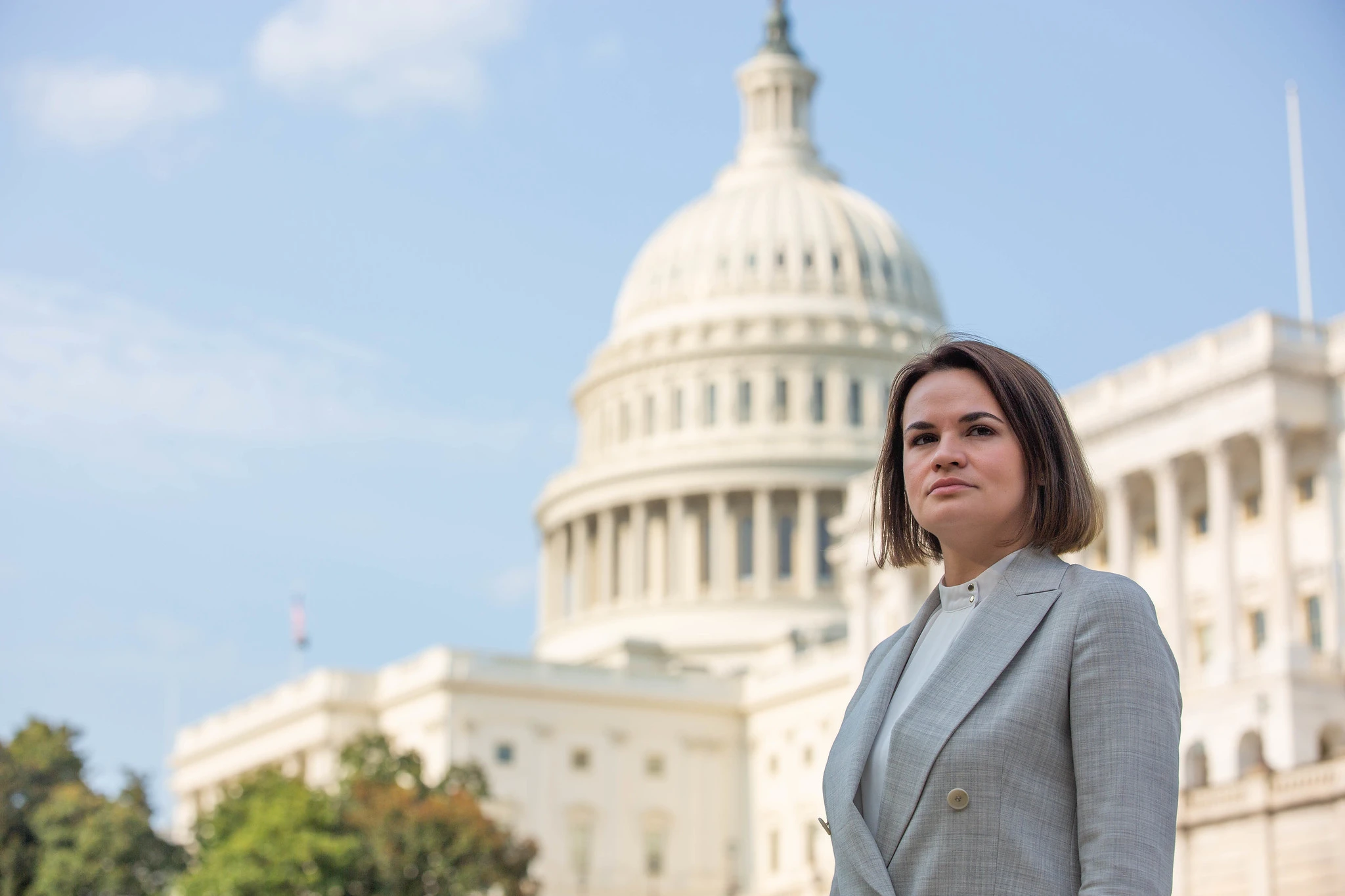
Photo: Sviatlana Tsikhanouskaya's Office
In your opinion, how might Donald Trump’s return to power affect the Russia-Ukraine war? Could he force Ukraine and Russia to negotiate? Also, do you expect any activation from Trump regarding the fight against Lukashenko’s regime?
Trump’s second presidency could be pivotal for our region, and he has repeatedly stated that ending the Russia-Ukraine war is one of the priorities of his foreign policy. Trump is a strong and often unpredictable player; he could use unconventional tools and pressure Putin to bring him to the negotiating table. The Kremlin will have to reckon with the might of America.
We have long worked with both sides in the US, and recently my advisors traveled to Washington and met with Trump’s team. But we also need to rely on our own efforts to secure future freedom, not just depend on American assistance and support. Belarusian and Ukrainian fighters are already doing this, fighting side by side for freedom. Political efforts are also needed to help Trump’s team step up the fight against dictatorial regimes like those of Putin and Lukashenko.
In 2020, President Trump was the first leader to impose sanctions against Lukashenko’s regime for election fraud and the brutal suppression of protests by the Belarusian people. So we already have examples of Trump’s leadership in fighting the Lukashenko regime. We expect that his new administration will continue its firm and consistent stance.
- News






